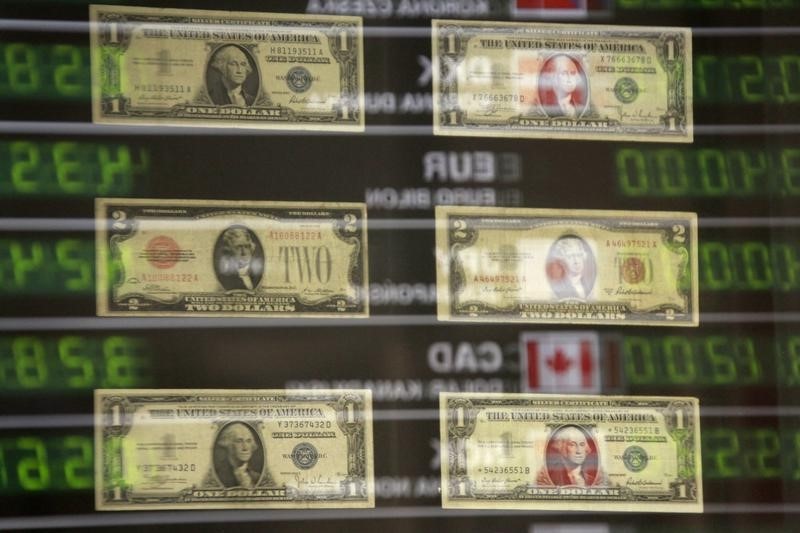By Wayne Cole
SYDNEY, April 7 (Reuters) - The Australian and New Zealand dollars rallied for a second session on Tuesday, as tentative signs of a slowdown in the spread of the coronavirus whetted risk appetite globally, though analysts cautioned it was early days yet.
The Aussie got a further lift when the Reserve Bank of Australia (RBA) indicated it would slow the pace of its bond buying, which nudged up long-term yields.
The Aussie climbed 0.9% to $0.6142 AUD=D3 , having already risen 1.5% on Monday and away from the recent low at $0.5980. The currency now needs to clear major resistance around $0.6215 to keep the rally going.
The kiwi dollar gained almost 1% to $0.5984 NZD=D3 , on top of a 1.1% jump overnight. It faces resistance at $0.6040 and $0.6067.
The RBA ended its monthly policy meeting on Tuesday by keeping rates at record lows of 0.25% as expected and again warned that the current quarter would see a "very large" contraction in the economy due to the pandemic. L4N2BV1BK
The bond market was less happy that the central bank signalled the break neck pace of its recent debt purchases would have to slow at some point.
By the end of Tuesday, it will have hoovered up A$38 billion ($23.33 billion) in government and semi bonds making it easily the single biggest holder in the world. At that pace the RBA would be buying more than the government is selling in new debt, even with massively increased borrowing needs.
"That extremely aggressive pace of purchases can't be sustained for long," said Marcel Thieliant, a senior economist at Capital Economics.
"Looking further ahead though, we still think the Bank has more work to do," he added, predicting unemployment would eventually climb to 12%. "The Bank may therefore have to launch negative interest rates at some point even though it currently has no appetite to do so."
For now, investors reacted by pushing 10-year bond yields AU10YT=RR up 8 basis points to 0.877%, while futures YTCc1 slipped 9 ticks to 99.1500.
Three-year bond futures YTTc1 held steady at 99.755 as the RBA remained fully committed to keeping short-term yields around 0.25%.
The Reserve Bank of New Zealand (RBNZ) was also active on Tuesday, saying it would buy up to NZ$3 billion in local government debt to ease liquidity constraints in the market. data out Tuesday hinted at the damage being done to the labour market with job ads diving 10.3% in March, the steepest decline since 2009. on travel and shipping saw exports and imports both hit hard in February, narrowing Australia's trade surplus to A$4.36 billion and hammering tourism.
($1 = 1.6289 Australian dollars) (Editing by Jacqueline Wong)
